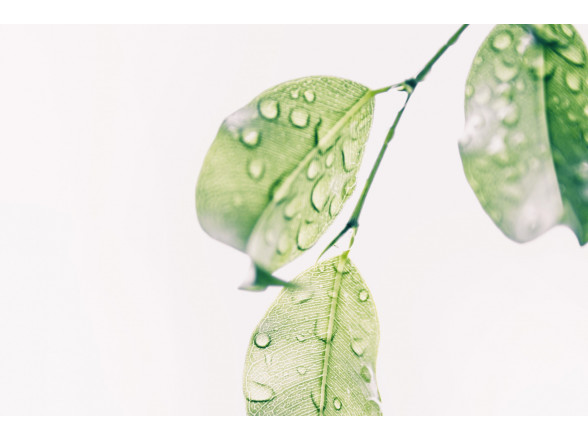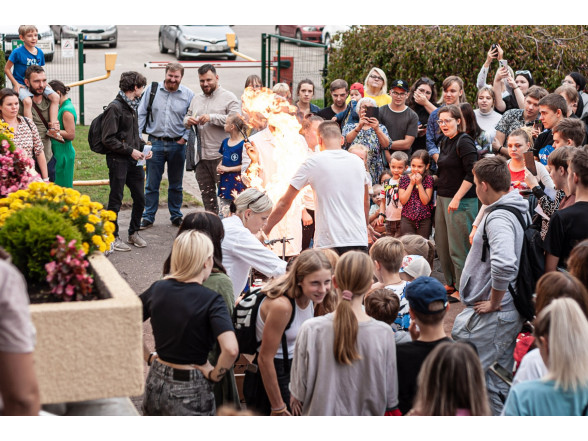On February 23, National Radio 2 (LR2) broadcasted a program called “Nākotnes pietura” (“Future Stop”). The guest of the program was ISSP UL’s leading researcher from the Laboratory of Ferroelectric materials, Dr. phys. Marija Dunce.
In the program, the scientist explains that her research interests are environmentally and human-friendly lead-free ferroelectric/piezoelectric materials (materials whose properties can be altered by an electric field). For example, sodium bismuth titanate (NBT) has recently been extensively investigated as a promising candidate to replace today’s widely used lead-based ferroelectric materials. The researcher sees it as her mission to find environmentally and ecologically friendly solutions and, at a time when electricity prices are a headache, the ability to convert mechanical energy (such as various industrial noises and vibrations) into electrical energy may help alleviate this problem.
Marija Dunce’s interest in lead-free materials is driven by people’s wish to live healthier, smarter and more environmentally friendly lives. Examining food packaging for E substances, bad fats, and calories is not uncommon. Still, people cannot find information about the packaging – what it is made of and whether it contains lead. Even the luxurious crystal glasses on the festive table have their sparkle and clear sound due to the presence of lead in the production technology. In addition, cracked earthenware coated with bright glazes can be just as dangerous - the glazing may contain lead. This chemical element is found in optical devices, batteries, wire coatings, anti-radioactive devices and, unfortunately, in the environment. It is estimated that there are around 180 000 tons of lead in the atmosphere, and even Greenland ice contains this toxic heavy metal - up to 2 mg/kg!
Marija also tells how she became a scientist and reveals that she has been chosen as one of the inspirers of the annual FIZMIX Experiment competition for school youth (grades 8 and 9). The competition aims to stimulate young people’s interest in the exact sciences, educate them about the safe and efficient use of electricity, and show them in an engaging way how to put theoretical knowledge into practice. This year the competition will also contain questions about future energy. The participants of the competition can get inspiration and advice from experts in physics and renewable energy.
The interviewer and researcher discuss the ISSP UL’s 45th anniversary in the program. Marija emphasizes the invaluable contribution made by the CAMART2 project to the development of the institute – its infrastructure, cooperation with scientists from other institutions in Latvia and abroad, interdisciplinary research, the raising of the skills and knowledge of ISSP UL’s researchers and connecting science and technology with industry needs. Marija explains that the CAMART2 project has significantly impacted the research of ISSP UL and Latvian scientists in the world context. The research scene has turned to be more application based.
During the program, Marija Dunce also promotes the “Solar Cup” competition for school youth, organized by the ISSP UL. This year the competition will take place on May 20.
Marija Dunce has also been chosen as one of the 50 most inspiring scientists in 2021



